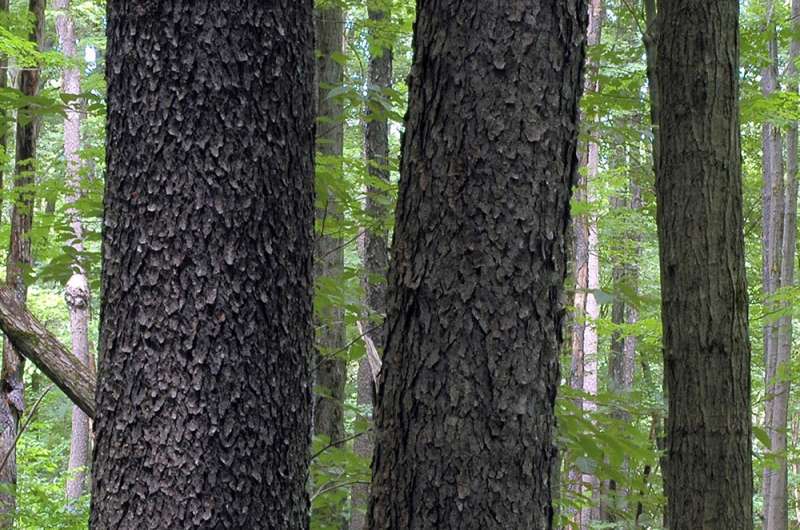#Decline in black cherry regeneration may herald wider forest change

“#Decline in black cherry regeneration may herald wider forest change”

In the heart of black cherry’s native range, including a part of the Allegheny Hardwoods that bills itself as the “Black Cherry Capital of the World,” the tree’s regeneration, growth and survival have all been declining for more than a decade. In a new analysis, a team of USDA Forest Service and University of Missouri scientists identify likely factors behind the tree’s decline and, more significantly, conclude that black cherry may be the tip of the iceberg in terms of change in eastern deciduous forests.
Scientists used a combination of synthesis of existing research and new analyses to examine the leading hypotheses for black cherry’s regeneration failure. They conclude that the two factors that are most likely contributing to declining abundance of black cherry are an increase in pathogens and less nitrogen deposition in soil.
“We began this project wanting to narrow down the potential drivers behind the change in black cherry; what we found is that this may be a story of change on a much bigger scale, with mixed species forests in the coming century likely to reflect the response of many individual tree species to changing environmental conditions, biotic stressors, and their interactions,” said Alejandro Royo, a research ecologist with the Northern Research Station and the study’s lead author.
A ‘Sweet’ cherry is the heaviest in the world according to the Guinness World Records
Alejandro A Royo et al, The Forest of Unintended Consequences: Anthropogenic Actions Trigger the Rise and Fall of Black Cherry, BioScience (2021). DOI: 10.1093/biosci/biab002
Citation:
Decline in black cherry regeneration may herald wider forest change (2021, March 24)
retrieved 24 March 2021
from https://phys.org/news/2021-03-decline-black-cherry-regeneration-herald.html
This document is subject to copyright. Apart from any fair dealing for the purpose of private study or research, no
part may be reproduced without the written permission. The content is provided for information purposes only.
If you liked the article, do not forget to share it with your friends. Follow us on Google News too, click on the star and choose us from your favorites.
For forums sites go to Forum.BuradaBiliyorum.Com
If you want to read more Like this articles, you can visit our Science category.



